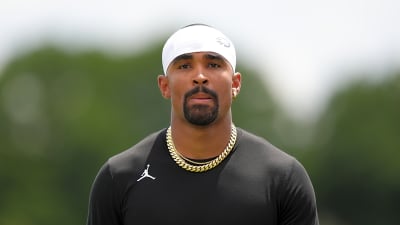
Every time Lane Hutson hits the ice, he finds a way to make headlines. The young Montreal Canadiens defenceman has already turned heads with his dazzling rookie season, his Calder Trophy win, and his ability to change the flow of a game with a single rush. But this week, it wasn’t Hutson’s play that generated buzz; it was a comment from his father. After Hutson was surprisingly left off USA Hockey’s Olympic orientation camp roster, his dad hinted that his son could one day represent Canada instead of the United States. The remark, made out of frustration, left fans and analysts wondering: Is that even possible? Could Hutson actually pull on a Canadian jersey at the Olympics?
The answer is layered, tied up in IIHF regulations, eligibility rules, and, most importantly, the reality of Hutson’s career path. While the thought is intriguing and made for quick headlines, the truth is far more complex.
A Frustration-Fueled Comment
The idea of Hutson switching allegiances didn’t come from the player himself, but rather from his father’s reaction to a snub. After all, Lane’s exclusion from Team USA’s 2026 Olympic orientation camp raised plenty of eyebrows. This is a defenceman who just completed a standout rookie season in the NHL, showcasing elite puck-moving ability and offensive instincts.
It’s within this context that his father made the comment about Lane also being a Canadian citizen. The message was clear: if USA Hockey won’t value Hutson, maybe another country would. Yet while it’s easy to understand the frustration behind those words, they should be taken with a grain of salt. It was more of an emotional statement than a serious declaration of intent. Still, it’s enough to spark the question in the hockey world: what if?
The Rulebook Reality
As fun as the hypothetical might be, the IIHF has strict regulations when it comes to switching national teams. Hutson has already represented the United States on the international stage, including at the U18 World Championship and the World Juniors. That fact alone changes everything.
According to IIHF rules, a player who has played for one country in IIHF competition is tied to that country unless special conditions are met. To switch, the player must hold citizenship in the new country and receive an approved International Transfer Card (ITC). The “four-year rule” applies: the player must play four consecutive years in the new country’s system, without representing his old country during that time.
That timeline rules out 2026 entirely. Hutson cannot possibly represent Canada at the Milan-Cortina Games. The earliest he could suit up for the maple leaf would be 2030, and only if every box is checked along the way.
Staying Realistic
Beyond the technicalities, the bigger question is one of identity and commitment. Lane Hutson is American. He grew up there, developed in U.S. programs, and has represented Team USA proudly throughout his young career. The pride he has displayed wearing the Stars and Stripes suggests that, even if he was disappointed by this year’s snub, his long-term future lies with Team USA.
By the time the 2030 Games roll around, Hutson will be 25 years old and in the prime of his career. If his development continues on its current path, he could be one of the top defencemen available to the United States. Rather than chasing a far-fetched switch, the more realistic storyline is that this omission becomes motivation. Snubs often light fires under young players, and Hutson has the talent to make USA Hockey regret its oversight by the time the next Olympic cycle comes around.
The idea of Hutson playing for Team Canada makes for an eye-catching headline, but that’s where it ends. His father’s comment reflected the sting of a snub more than a genuine possibility. More importantly, Hutson’s history, identity, and trajectory point firmly toward the United States.
By 2030, Hutson should be in the conversation not as a Canadian defector, but as one of the American program’s brightest stars. For now, the best way to interpret the story is as fuel for a young defenceman eager to prove his worth to the Canadiens, NHL, and, ultimately, USA Hockey.
More must-reads:
- Can Penguins defenseman Kris Letang rediscover his game?
- Texas HC addresses Arch Manning injury rumors
- The 'Longest receptions of the 2024 NFL season' quiz
Breaking News
Trending News
Customize Your Newsletter
 +
+
Get the latest news and rumors, customized to your favorite sports and teams. Emailed daily. Always free!








